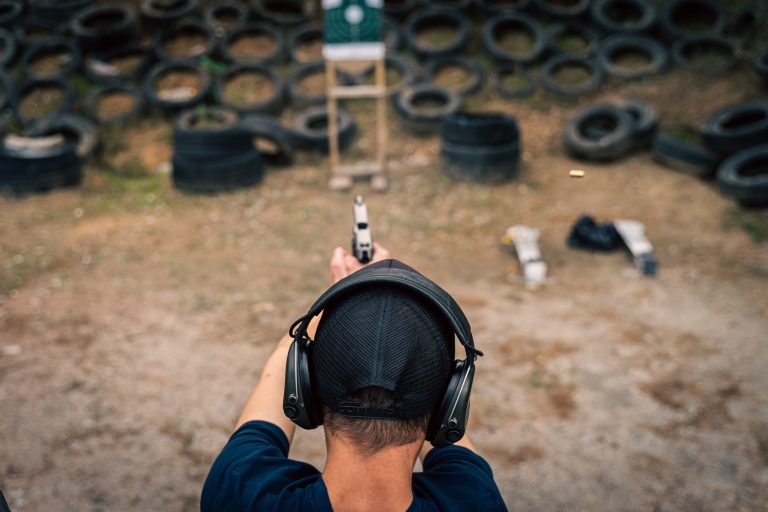Four Pillars of Justifiable Force

Four standards must be met for the use of deadly force to be deemed legal. The four pillars of justifiable force explain the parameters. We need to understand that even if the law does not press charges because the standards were met, it does not mean that the person who threatened us (or their family should they not survive), won’t sue in civil court. Fortunately, Indiana has passed the House Enrolled Act 1284. The main focus of the House Enrolled Act 1284 is to give more immunity to people who have used justifiable force in the manner of self-defense.
Four Pillars of Justifiable Force
Ability:
This is the physical capability to kill or seriously injure. Sometimes this means a weapon such as a knife, club, or gun. It can also mean “Disparity of Force.” Disparity of Force in this context is when there is a large enough difference between the attacker and the attacked that raw physical capability alone is enough to be recognized as Deadly Force. The typical examples are a group attack, though unarmed, against a single individual, or the proverbial attack by a 300-pound enraged linebacker against a 90-year-old fragile-boned grandmother. Martial Artists, take note: there have been a few court cases which have ruled that martial arts training constitutes Deadly Force because of the, assumed, greater skill that the martial artist possesses. Same for Military and LEO training.
Opportunity:
Opportunity is similar to Ability, in that it reflects a raw ability to inflict grievous harm. However, Opportunity is more often linked to physical proximity. If the attacker is not within range to perform the attack then there is no threat. An attacker with a knife 50 feet away is no attacker at all. Potentially, if they close the distance, they could become an attacker. On the other hand, an attacker with a firearm 50 feet away is most certainly within range to inflict bodily harm. An attacker must have the “Opportunity” to use his “Ability” for the attack to be a credible threat of Serious Bodily Harm or Death.
Imminent Jeopardy:
This means that the threat is immediate and that a “Reasonable Man” would believe, based on what information is available at the time, that the aggressor intends to cause severe physical harm or death. A “Reasonable Man” is a legal fiction, a pretend person, if you will, constructed to be an “everyman,” a non-crazy, average Joe, with average knowledge, skills, and understanding. If a “Reasonable Man” could be said to believe that a threat is immediate, then it is “reasonable” to assume that you would too. Threats by the aggressor of some future attack do not satisfy Imminent Jeopardy while threats or actions that indicate an immediate, “right now,” intention do.
Preclusion:
This means that all other options preceding Deadly Force were either exhausted or were not viable. Some places have a Duty to Retreat law or legal precedent. Essentially these address the same issue. Legally and morally the individual must reasonably eliminate all other methods to stop an attack before resorting to Deadly Force. It is particularly important to note that this does not mean that the individual must first “try, fail, discard, and then try another” to eliminate all other options. Many options are eliminated by the immediacy of the threat. As an example, one simply does not have time to call the police and report a burglar when an aggressor is in the process of pounding you into a bloody pulp. Similarly, being prevented by the aggressor from leaving the area, such as if you were trapped up against a wall or had children with you, may preclude the Duty to Retreat.
Acting in retaliation or revenge fails to meet the criteria of self-defense. Defending against harm or suffering from an aggressor who is intent, present, capable, and undeterred may be justifiable.
If a thief is caught breaking in at night and is struck a fatal blow, the defender is not guilty of bloodshed; but if it happens after sunrise, the defender is guilty of bloodshed. ‘Anyone who steals must certainly make restitution, but if they have nothing, they must be sold to pay for their theft. Exodus 22:2-3
No one should be too quick to use deadly force against another, even someone who means to do him harm. Even in the case of self-defense against a thief, a godly person is expected to try to restrain the assailant rather than immediately resort to killing him.







